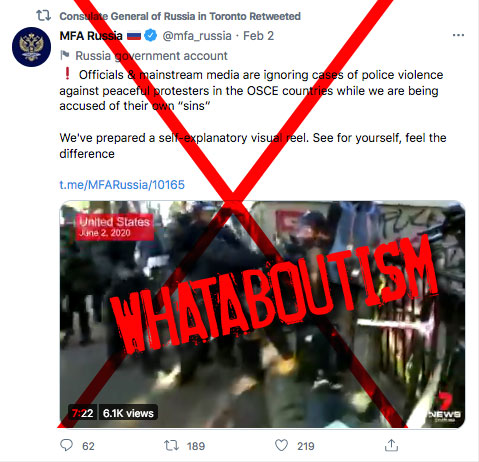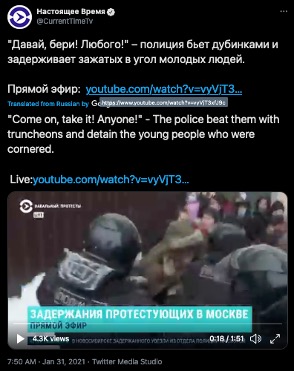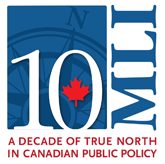
Whataboutism, the “practice of responding to an accusation or difficult question by making a counteraccusation or raising a different issue,” is a well-practiced tactic used by authoritarian regimes accused of engaging in human rights abuses and mass political repression, including the Russian government, going back to the Cold War.
In response to global criticism of the Kremlin’s arrest of anti-corruption activist, Alexy Navalny, and the mass protests that have since erupted in Russia in support of Navalny, the Putin regime has engaged in a campaign of “whataboutism” against its western critics to justify its repression and violence against peaceful protestors.
A recent Telegram video posted to Twitter by the Russian Ministry of Foreign Affairs features a 7.44-minute montage of various riots in western countries, with the caption “Officials & mainstream media are ignoring cases of police violence against peaceful protesters in the OSCE countries while we are being accused of their own ‘sins’.” The video was shared to over a quarter-million Twitter users between Feb 2 and 4.
Some confrontations between protestors and authorities in western nations do, unfortunately, become physical from time to time. When protestors behave aggressively, as they did in Washington on January 6, 2021, police are sometimes required to use force to restore calm.
However, crowd control of peaceful protests in western nations rarely explodes into the sort of violence and mass arrests that were witnessed across Russia on January 23, 2021, when nearly 4000 people were arrested and on January 31, 2021, where over 5000 people were arrested, including 82 journalists. Widespread, arbitrary violence was widely recorded as Kremlin riot police chased down peaceful protestors in cities across Russia. In one instance, recorded by Radio Free Europe/Radio Liberty, a group of young Russians were cornered and violently bludgeoned by Russian riot police:


